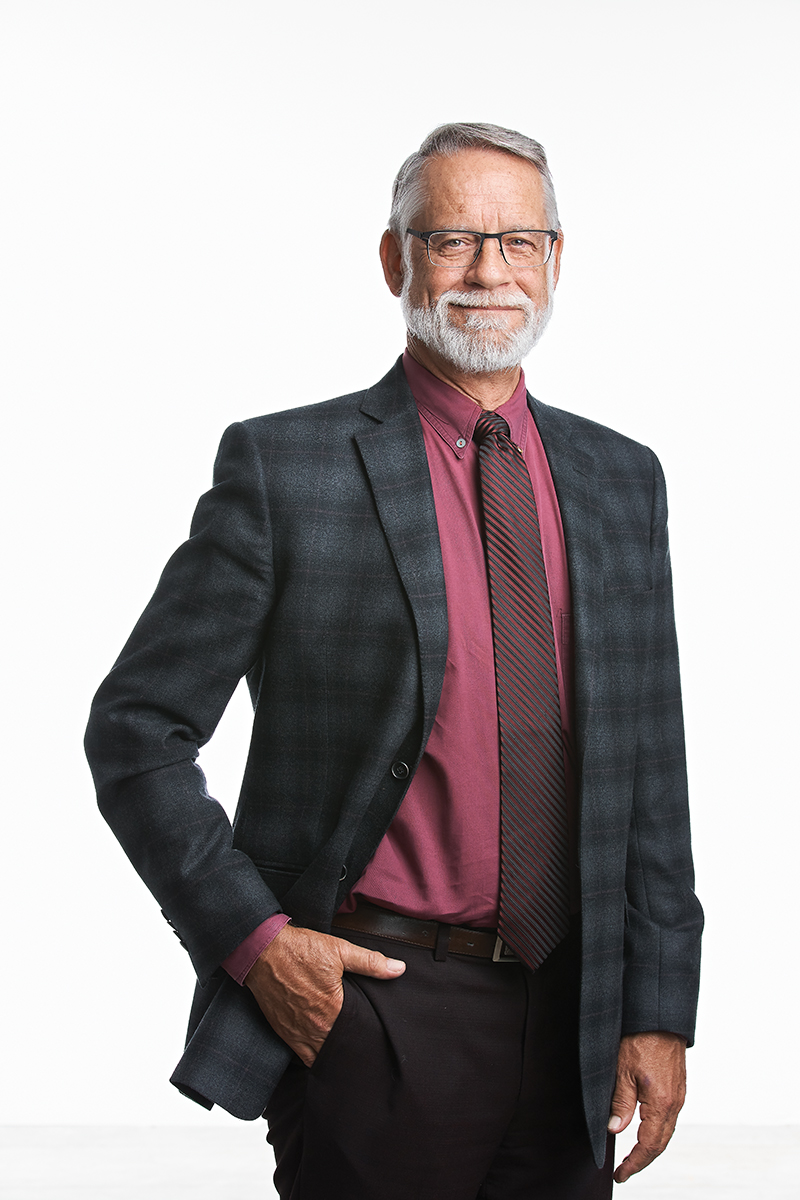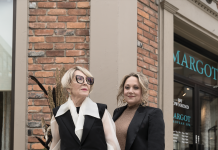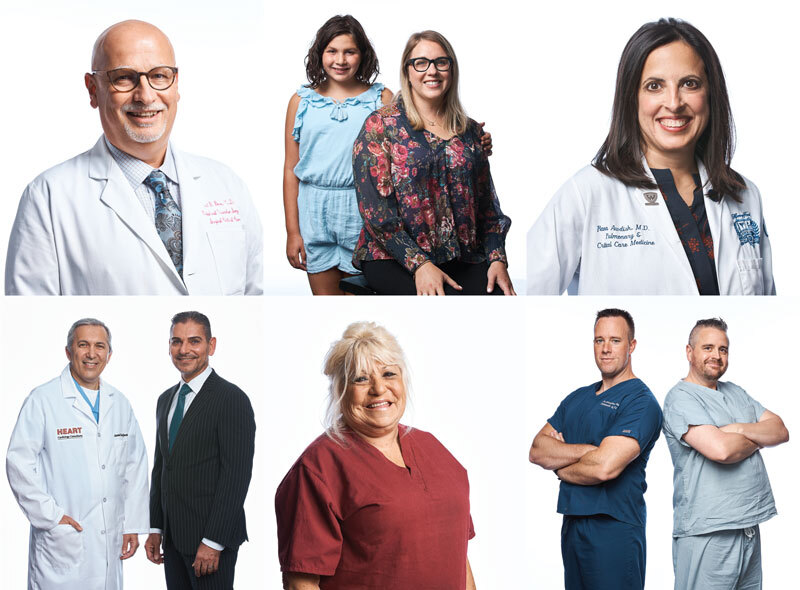
At a time when the nation is suffering not just from a relentless pandemic, but also from deep social divisions, we can find some solace in our shared appreciation for the risks and sacrifices frontline healthcare workers face daily on our behalf. Here, we honor medical professionals from our 2020 Top Docs List — and the heroes who keep them going.
Top Doctors and Their Heroes
Dr. Rana Awdish and Judith Gray-Davis // Dr. Paul Bove and Dr. Paul Reitmeier // Dr. Brooke Weingarden and Maya Weingarden // Dr. Christopher Cooke and Christian Gentry // Dr. Muzammil Ahmed and Judy Weber // Dr. Rachel Rohde and Dr. Steven Rockoff // Dr. Jamal Zarghami and Dr. Manhal Tobia
Top Doctor Rana Awdish and Her Hero, Judith Gray-Davis
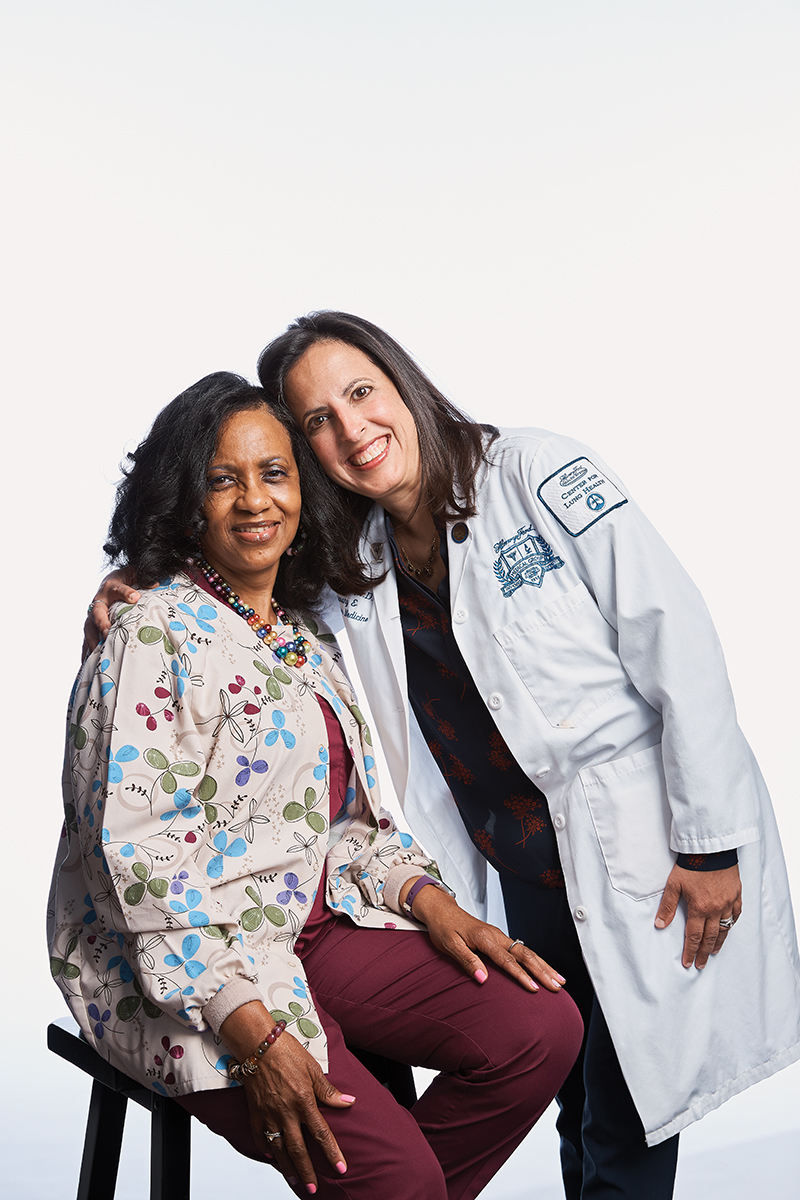
Dr. Rana Awdish
Head of pulmonary hypertension medicine, Henry Ford Hospital
At first, Dr. Rana Awdish resisted becoming a COVID-19 media star. As the novel coronavirus began cutting its deadly path through metro Detroit this spring, she was inundated with requests for interviews, first from local and then national and international journalists. She did a few early on, but the head of pulmonary hypertension medicine at Henry Ford Hospital found all the attention distracting and uncomfortable. “I said no to a lot of things,” she says. “I wasn’t sure it was a good idea.”
The thing is, Awdish was the perfect doctor to give voice to the overwhelming challenges and traumas besetting Detroit’s medical community as ICUs filled up and thousands of people died in cruel isolation brought on by efforts to contain the spread of a highly contagious virus.
Awdish isn’t just any physician; she’s a 45-year-old critical care specialist who also wrote a best-selling memoir on what it’s like to journey through our modern health care system as a patient. Back in 2008, she, like many COVID-19 patients, went from seemingly healthy to death’s door in an instant. She was seven months pregnant when a tumor she didn’t know she had ruptured in her liver, leading to a stroke, organ failure, and massive blood loss.
Her survival beat the odds, and she returned to medicine with a new understanding of and passion for treating severely ill patients as human beings who need attention paid to their emotional well-being as well as their bodies. In her 2017 memoir, In Shock: My Journey from Death to Recovery and the Redemptive Power of Hope, she recounts how dehumanizing and disempowering her patient experience — at her own hospital— was, from learning of the death of her unborn baby through overheard hallway chatter to hearing doctors and nurses say to one another, as if she weren’t there, that Awdish had been “trying to die on us.” She has spent the past decade teaching fellow providers, most recently as the director of patient experience for the Henry Ford Health System, to treat patients with respect and reverence even when they don’t seem conscious.
So, in many ways, Awdish was uniquely suited to contend with COVID-19, both as a shock to patients and to the entire health care infrastructure. At first she was out there talking about the dearth of personal protective equipment on Michigan Public Radio and the disproportionate impact the coronavirus was having on the Black community in The New Yorker. But plenty of experts could talk about all of that.
What made Awdish different was her ability to remind viewers or readers at every turn — as both a doctor and a former ICU patient — of the bizarre and horrific toll COVID-19 was taking on caregivers, patients, and families.
After years of pushing hospital personnel to deal with patients as people, she says, along came a virus that made health professionals unable even to show their terrified, lonely patients a smile for fear of exposing their faces.
COVID-19 patients, Awdish says, “were locked in their rooms. They were oversedated because the nurses couldn’t go in and out that frequently. We didn’t have enough PPE. They couldn’t have family at their bedside to reorient them, and if you have family around you in the ICU, you at least can interpret yourself through their presence. It was really just the most essential care that was being delivered. It was just the medicine, none of the holistic, whole-body healing most people need when they’re critically ill. Instead, the people caring for you are in many ways afraid of you, so they’re limiting their contact with you. It’s a setup for delirium.”
The most that could be done, Awdish says, was to try to provide some semblance of familial support. “Many of us had to play the role of surrogates for the family and really be at their bedside and absorb a lot of the stories they were hearing from the family through iPads and being in the room at the time of death for our patients who didn’t have anyone else to be there for them,” she recalls.
Awdish earned her medical degree at Wayne State University after a childhood in Livonia, where she was raised by a Lebanese immigrant father who worked as an engineer for Ford Motor Co. and a Palestinian immigrant mother. She took interest in medicine at a young age after her family pediatrician saved her brother’s life by identifying his breathing difficulties as epiglottitis. She considered obstetrics or pediatrics, but in med school she found the critical care doctors she interned under to be “infectiously passionate about it. It was impossible not to see the dynamism of it. It was everything all at once. In the ICU, there’s so much science — ventilators and physics and wave forms — all the things I loved.”
COVID-19 first arrived at her ward in mid-March, and the volume abated by summer, but she finds those who were caught in the thick of it — herself included — still struggle with the emotional aftermath, she says. “It also doesn’t feel normal because we have an anticipatory sense of what’s ahead,” says Awdish, who is married with a 9-year-old son. “Everyone is worried there will be another spike in the fall, combined with the flu.”
One big fear: A weary, antsy public won’t stay home, mask up or socially distance to help gain control of a second wave. “I don’t think we’re going to have that kind of community support,” she says. “It doesn’t feel like we have it now. That makes the work harder when you don’t feel buttressed by the larger community, when you feel your work isn’t valued.”
It’s one reason Awdish has embraced her media status. In late June, she starred in an episode of NPR’s This American Life, and in early August she co-authored a Washington Post opinion piece asserting that isolating COVID-19 patients from their loved ones “is making them sicker.”
“If I have a platform, I’m going to use that to elevate the things I think are meaningful and help others to get through this,” she says. It’s too early to contemplate another book based on the COVID-19 experience, she says, so she’s been writing essays instead. “I’m taking little bites at this because this feels really big. The only reason I write is to process what I’m thinking and understand it better so maybe the community can understand better. If I continue to think there’s value in that, I’ll continue to do it. Otherwise, I have other things I can do — like medicine.”
Judith Gray-Davis
Nurse assistant, Henry Ford Hospital
Daily at the height of the COVID-19 pandemic in Detroit, Judith Gray-Davis was the final person some patients ever saw. Time and again, she sat at the bedsides of lonely, scared, or simply unconscious patients as the coronavirus destroyed their bodies and ended their lives, serving as a proxy for loved ones kept away in the desperate effort to prevent further spread.
This is why she is Dr. Rana Awdish’s hero. Gray-Davis, a 61-year-old nurse assistant at Henry Ford Hospital, “was kind of taken for granted by a lot of us,” says Awdish, the hospital’s head of pulmonary hypertension medicine. “I don’t think she knows what a gift it was not only to the families but to everyone trying to provide compassionate care during this pandemic that she took this on herself. She unburdened us, and it was at a moment where the greatest gift of love was unburdening someone when they can’t handle anymore. That’s what Judy did for us.”
Gray-Davis, who started at the hospital as a co-op student from Pershing High in Detroit and is still there four decades later, doesn’t see herself as a hero. She just saw people being forced to face the worst, most profound moments of their lives and decided she could help. She dialed final phone calls before patients went on ventilators. She bowed her head to pray when they asked her to. If they asked her not to leave because they were afraid of dying alone, she sat back down and someone else on the floor took care of her other duties.
“At that time, I’m their family, I’m their loved one, I’m all they have,” she says.
Awdish says she didn’t realize the burden Gray-Davis voluntarily took on until this summer when Gray-Davis shared at a group rap session for hospital personnel that Awdish organized. In one anecdote, Gray-Davis described placing a call for a 62-year-old man about to be put on a ventilator — and who would die days later — who needed to give his wife the bank account passwords and life insurance policy information. “She carried a great deal of guilt around that, the feeling that it was so inhumane that these people died without their families there,” Awdish recalls.
Indeed, Gray-Davis, who lost her husband to a massive heart attack 22 years ago, found this grief unimaginable. “Once the patient was at the point where they weren’t going to survive, we had some windows where they could look at their loved ones, but they’re still not able to touch or hug their loved one, so you’re there supporting them because you’re the only person they can touch and see,” she says. “You could have two in one day, three in one day.”
Gray-Davis says she initially tried to encourage dejected patients not to give up hope. But eventually she realized she served them better simply as a comforting companion.
“I have learned to always listen to patients,” she says. “Sometimes you just have to listen. You just have to be that ear for them, you just have to be there for them. You don’t need to say anything. Just being there and knowing the patient really appreciates you can be enough.” —Steve Friess
UNSUNG HEROES
We invited doctors across the region to tell us about healthcare heroes whose work would otherwise go unheralded.
Jamie DeMara
Office manager, Walnut Lake OB-GYN and Wellness
“Since the beginning of the outbreak, Jamie DeMara has always been there for our staff and providers. While caring for her two young children and filling in as a teacher, she still manages to lead our practice and help organize and support the changes needed to adapt to an environment changing daily. Her calm demeanor and logical approach to problem-solving has made her a leader and invaluable support for our practice.”
— Nominated by Lon Katz, M.D., Physician owner, Walnut Lake OB-GYN and Wellness, Huron Valley-Sinai Hospital
Top Doctor Paul Bove and His Hero, Dr. Paul Reitmeier
Dr. Paul Bove
Associate professor of surgery, Oakland University William Beaumont School of Medicine
My hero is Paul Reitemeier, Ph.D., who was the corporate director of medical ethics for Beaumont Health. Unfortunately, just after the peak of the pandemic, due to budget cuts, his position was eliminated. Dr. Reitemeier had a huge challenge. When you’re dealing with medical ethics, you’re dealing with patients and families at crucial moments. On top of that, Beaumont Health was going into an eight-hospital system. He was a person who could come into a meeting with highly charged ethical issues and he was able to make patients and families feel totally understood and let them know their feelings were being heard. He would go from hospital to hospital bridging all those gaps. He is very missed. He left a great imprint.
Dr. Paul Reitmeier
Former corporate director of medical ethics, Beaumont Health
In April, due to revenue losses, they laid off 2,500 people, and I was one of those. In fact, my whole department was eliminated. My role was to try and help people think ethically in a clinical context. Even though everyone says to anticipate serious illness and end of life and have those discussions ahead of time, most people don’t do that. We ended up in the ICU with these heart-wrenching cases of patients who were dying and family members who couldn’t bring themselves to let go. They just wanted one more heartbeat, one more day. Even though there’s a patient in the bed, a lot of work is done with the family members. It’s a great deal of pain and emotional distress for them.
My last day was April 22. We thought we were in a better situation than it turned out we were in. I decided to retire. I’m 67 years old and I’ve been at this for 30 years. It was enormously fulfilling, even though we got a fair dose of tragedy. I do miss it. Any abrupt change is a difficult change. I wasn’t prepared for the absence of deadlines. I miss working with the doctors and nurses and social workers and attorneys and administrators. I also was deeply appreciative of their positive response to our efforts. I’m glad we were able to do what we did. I wish we’d been able to hang around longer. —As told to Lindsay Kalter
Shari Maxwell
Program director OB-GYN Residency, associate medical director OB-GYN Western Wayne Family Health Centers; clinical associate professor OB-GYN, Wayne State University School of Medicine
“Dr. Shari Maxwell worked endlessly during the pandemic to safely deliver babies while keeping the mothers, the staff, and her residents safe. She has never missed a day during this pandemic to deliver her compassionate care.”
— Nominated by Sharon D. Minott, M.D., Pain Management, Ascension Providence
Top Doctor Brooke Weingarden and Her Hero, Maya Weingarden
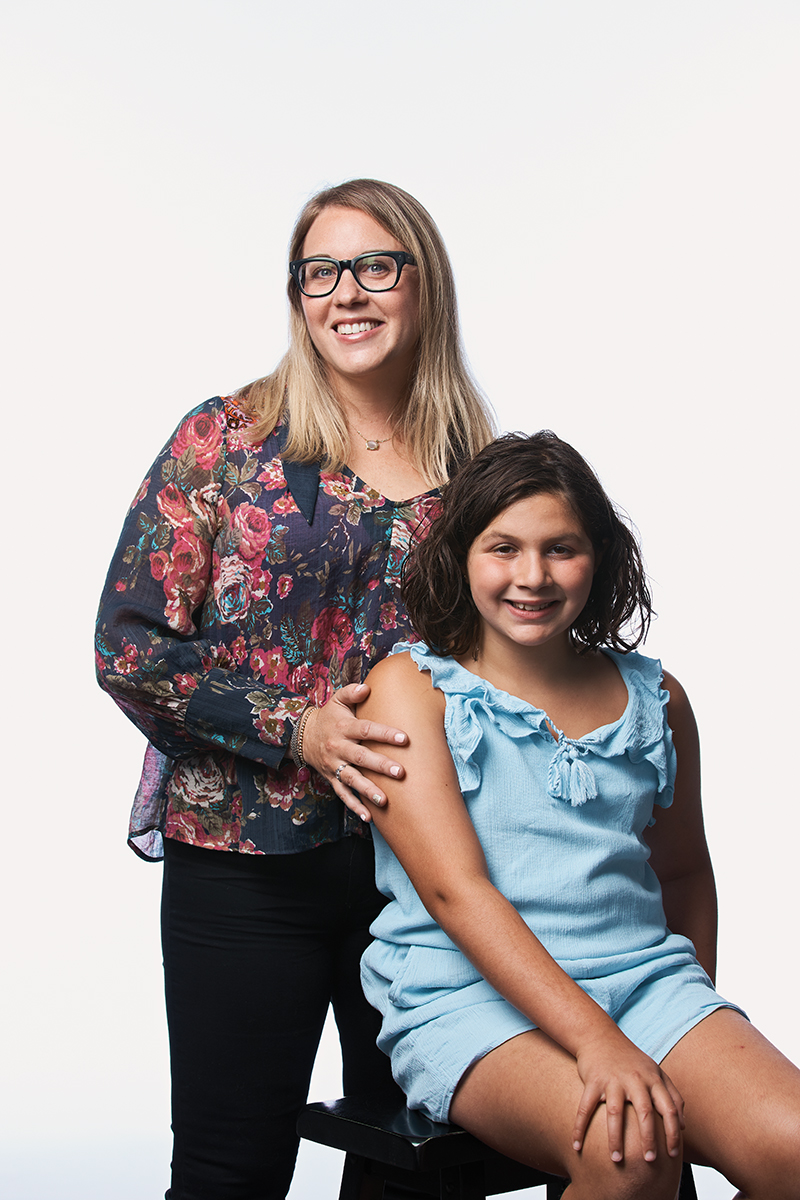
Dr. Brooke Weingarden
Child and adolescent psychiatrist, Birmingham Maple Clinic
My hero is my 9-year-old daughter, Maya. My mother and I both contracted COVID in mid-March. I know how quickly COVID can change in people, so I often was fearful at night that I would not wake up in the morning. Maya didn’t skip a beat. She would sleep with me every night because she was very scared, but also because she wanted to be there in case I needed anything. For many children and even adults, this has been a particularly scary time. I see family and kids all the time for work, and people have a varied way of handling this. Throughout all of this, when I was sick and when my mom was sick, being all by herself with us in the house, Maya stepped it up.
She would wake up every morning and set her own alarm to get up and do her virtual learning. When she was done with class, she would go in the kitchen and make lunch for both of us and bring it to me. She helped me construct a massive oxygen tank for her grandmother when she came from the hospital. She would try to entertain us, putting on the dresses in her closet and doing fashion shows. In the midst of all of this, we would also record her telling stories and reading storybooks online to uplift the community. She would give a little tip for mental wellness in each video, like “here’s something you can do to stay active or maintain contact with friends.” Because she was so positive, it was such a great distraction from feeling so awful. She was very scared, but throughout this terrible and crazy time, she was such a good caretaker with such a positive attitude. She has been a beacon of light.
Maya Weingarden
Daughter of Dr. Weingarden
I felt bad for my mom and grandma. I wanted to help them, so I tried to be positive and take care of them. I would wake up in the morning and finish my schoolwork in two hours. I like to cook, so when I finished school, I would go make a lot of food, and then I would go help my mom. Since I did school so fast, that part wasn’t hard. But it was hard to take care of my family. I was very scared. I knew what COVID was from school and sometimes from the news. I was scared my grandma might die. I FaceTimed her almost every day when she was in the hospital. I was worried about my mom. I started crying when I heard she was sick. Every time she didn’t feel good, I would become more scared.
One time [my mom] started getting really sick in the bathroom. Her friend is a doctor, and I had her phone number, so I called her. She told me to calm down and to give my mom a certain medicine and drink to help her. Some nights, in the middle of the night, I would wake up and get her the medicine and water. I also entertained her a lot. I would do dance parties and make shows and cool foods. I made her Starbucks drinks and ice cream bread. Once, in the middle of the night, we both were like, “We should order some pizza” at 11:30. So we did.
As I took care of my mom, I realized that in the future I would have a better chance of taking care of myself, since I know how now. I could also understand what her patients were going through. Maybe they were scared too. It’s important to stay positive and help out. Do something funny. Be brave. I stayed calm. Take a deep breath and stay positive. —As told to Madeline Halpert
Top Doctor Christopher Cooke and His Hero, Christian Gentry
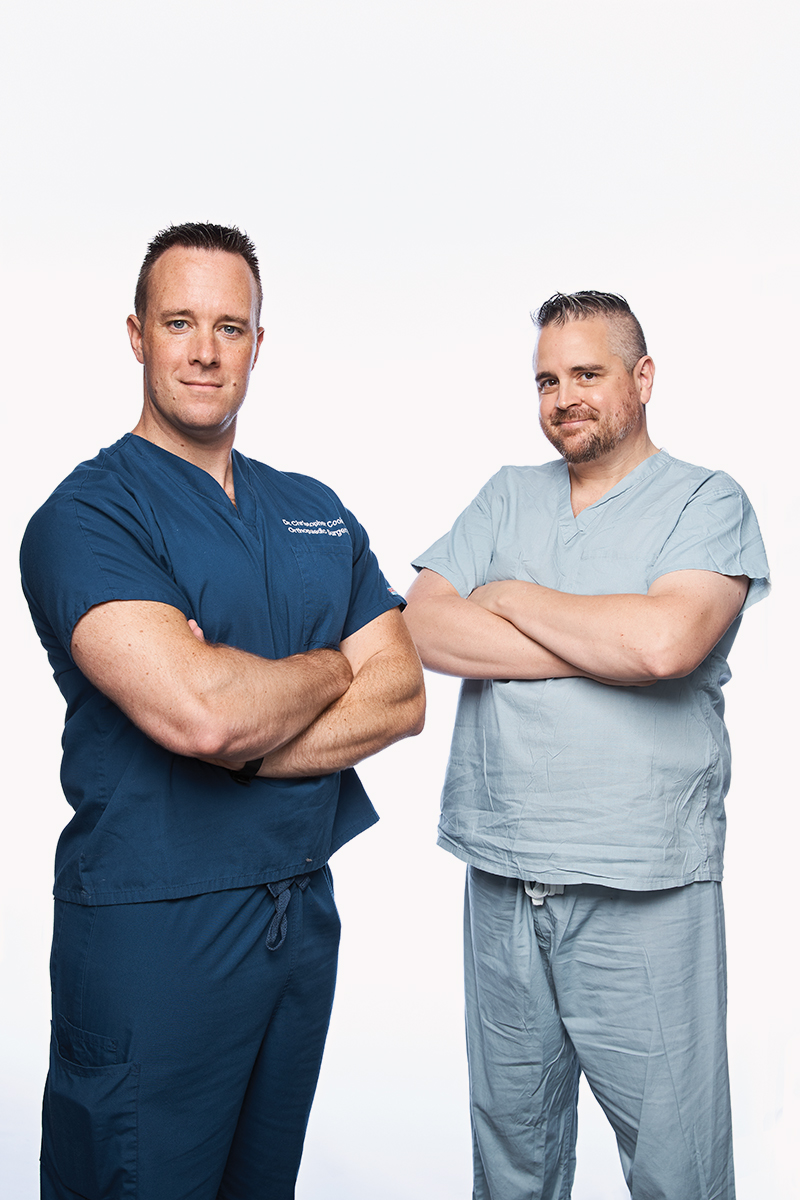
Dr. Christopher Cooke
Orthopedic surgeon and sports medicine specialist, Detroit Medical Center
My hero is Christian Gentry, a surgical assistant at Huron Valley Hospital. He thinks outside the box. Once elective surgeries stopped, he said, “How can I help?” Once they discovered that proning was beneficial, he went to the other members of the team who weren’t working and said, “Hey, we should do this as a team, and if we work together, it’ll be really effective.” They would spend the entire day flipping ventilated COVID patients from their back to their stomach in an attempt to improve their respiration. They also did education, explaining the proning treatment to patients and families. There’s no way to quantify how many lives they saved by both proning and educating patients, but it’s more than we can account for.
I would talk to Christian at the hospital occasionally and see his look of exhaustion from being on his feet all day moving patients, and a little bit of a mental toll as well. Even though a lot of us felt helpless, he was one of the people taking action to try to remedy the problem. The unsung heroes are people like Christian. Some people ran away from this disease. And people like Christian ran toward it.—
Christian Gentry
Surgical assistant, Huron Valley Hospital
I’m a certified surgical assistant at Huron Valley Hospital. Around the beginning of March, the hospital went into a panic mode trying to figure out what to do. As a surgical assistant, my work became almost nonexistent. Sitting at home and watching people die on television is not something I can do. That’s the reason why I volunteered to go onto the proning team, because that gave me a steady place to be and a purpose to wake up in the morning. There were 10 of us, and we called ourselves the flippers.
The primary issue with our coronavirus patients who were critical was that they couldn’t fill their lungs up enough. When we turned them onto their stomach, it allowed them to fill their lungs a little more easily because they didn’t have the weight of the chest and muscles pushing down. Somebody needed to go in and flip the patient over onto their belly during the afternoon, and then flip them over onto their back in the morning again. Being in surgery, my team and I are very good at moving patients who are unconscious, so we were perfect for the job. We grew very efficient at it, unfortunately, just from doing it so much. We’d also wash the patients in the morning, change their sheets, all the manual stuff that the nurses didn’t have time for because they were overwhelmed just trying to keep them alive. We knew our roles. We weren’t the ICU nurses. We were just doing the best we could to be supportive.
We would wear two pairs of gloves, our normal scrubs, a jacket over the top of our scrubs, and then a gown over the top of that. We also wore an N95 mask, another mask on top of the N95, and a face shield. We washed ourselves constantly. Basically, I would take four showers a day. It became paranoia. It was scary knowing that at any minute you could become one of those people, because you’re physically handling patients. But [the protective equipment] seemed to work because none of us got sick.
The hardest part was that you become attached to everybody. You learn their names. You start learning their stories, their families. Sometimes it was amazing, like when they came off the ventilators — it was a tremendous lift of joy. We’d celebrate and it would be great. But some days you came in the morning and you heard that Barbara in room 271 passed away last night. It was devastating. A lot of that took a big toll, but we just kept doing our job. —As told to Madeline Halpert
Rafael Barretto
Director of Medical Education and head of the COVID-19 Response Team, Ascension Macomb-Oakland Hospital
“Dr. Rafael Barretto almost single-handedly developed a plan to mobilize the hospital’s 218 residents and fellows to help cover the emergency department, the intensive care unit, and the hospitals floors that had been converted to COVID-19 units. He maintained a complicated coverage schedule for the two-and-a-half months of Level 3 pandemic emergency. His clinical practice took care of up to eight floors of those COVID-19 patients — many on ventilators — facing life-and-death decisions many times a day. His tireless work saved countless lives and maintained Ascension Macomb-Oakland throughout the first wave of COVID-19. He deserves a medal!”
— Nominated by Patrick Woodman, Program director, OB-GYN Residency Program, Ascension Macomb-Oakland Hospital
Top Doctor Muzammil Ahmed and His Hero, Judy Weber
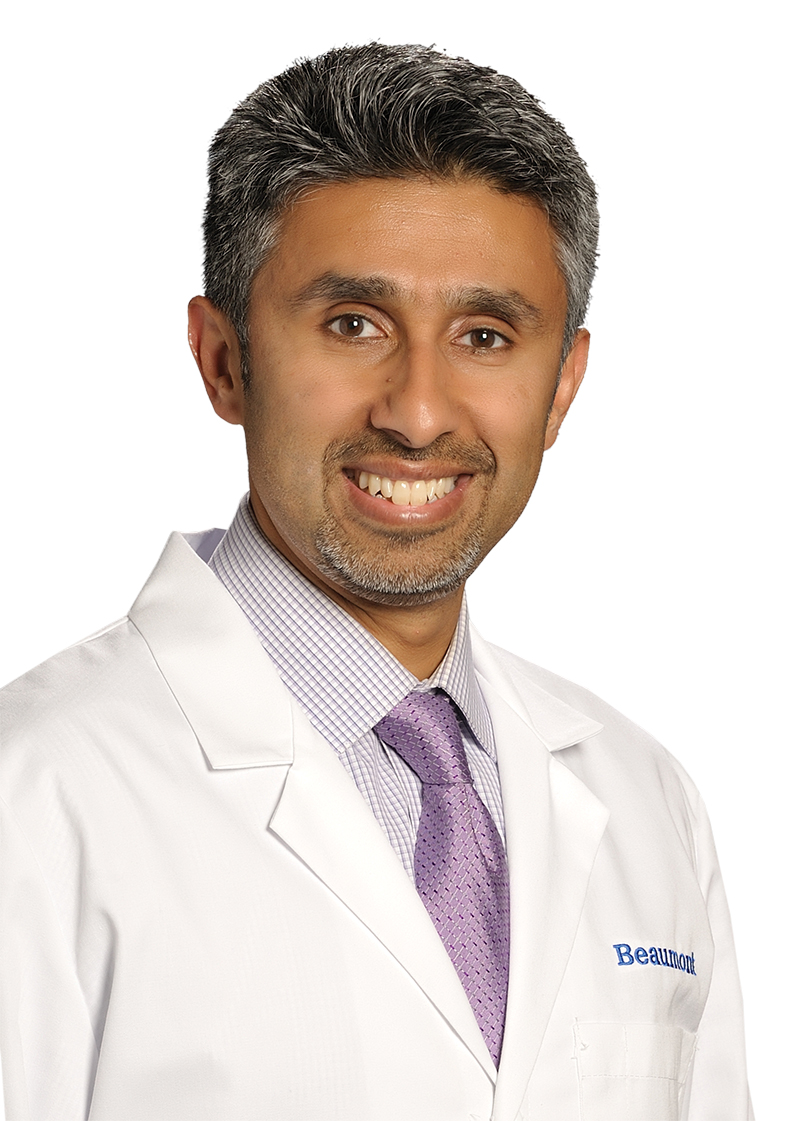
Dr. Muzammil Ahmed
Chief of medical staff, Beaumont Hospital Wayne, and clinical assistant professor of urology, Wayne State University
My hero is Judy Weber. Judy is one of our housekeepers in her 70s, who has been at [Beaumont] Wayne for 40 years. She was offered a chance to stay home during COVID but wanted to keep working. She is always smiling, positive, and is highly dedicated. When the COVID crisis hit, a lot of the older employees and staff members were asked to not go to the hospital because of increased risk. A lot of them just stepped away. But she wanted to stay because it gave her purpose. Her dedication is just amazing. She never misses a beat.

Judy Weber
Housekeeper, Beaumont Hospital Wayne
During the time it was real, real bad, we had one wing that was strictly COVID patients. To me that was a really traumatic thing. I knew employees weren’t coming in, but I always felt, as the saying goes, somebody has to do it. If we weren’t there and doing it, who would be? I just felt a dedication after all those years. Being there as long as I have, the most heartbreaking thing to me is that patients who’d been coming in for years would pass away. I would see these patients I kind of knew, and I would talk to them like they were old friends. When they would pass away, I would take it home with me and think about it. It’s always on your mind. It’s always there.
I have three children and five grandsons, and for a long time we didn’t see each other. I did feel lonely. One of my grandsons had a burst appendix that went septic, and he was still recovering from that. You just pray none of your family members get sick. And you just do what you have to do, put in your time, and do the best you can. —As told to Lindsay Kalter
Mary Serowoky
Lead nurse practitioner, Henry Ford Health System School-Based and Community Health Program
“Mary has been essential to helping Henry Ford Health System’s school-based health program respond to the COVID-19 crisis. After the state-ordered school closures, Mary acted quickly to find alternative work for our school-based clinic staff, including virtual care, redeployments to call lines, testing sites, and inpatient wards. Once our staff had been successfully redeployed, Mary then volunteered to be redeployed herself and worked in a COVID-19 surge unit as well as doing COVID-19 testing in collaboration with the Detroit Health Department. She is an amazing provider and also shares her wisdom by teaching in the family nurse practitioner program at the University of Detroit Mercy. She is truly a ray of sunshine to all she encounters, and we are so lucky to have her in our school-based health program.”
— Nominated by Maureen Connolly, M.D., FAAP, Medical director, School-Based and Community Health Program, Department of Pediatrics, Henry Ford Hospital
Top Doctor Rachel Rohde and Her Hero, Steven Rockoff
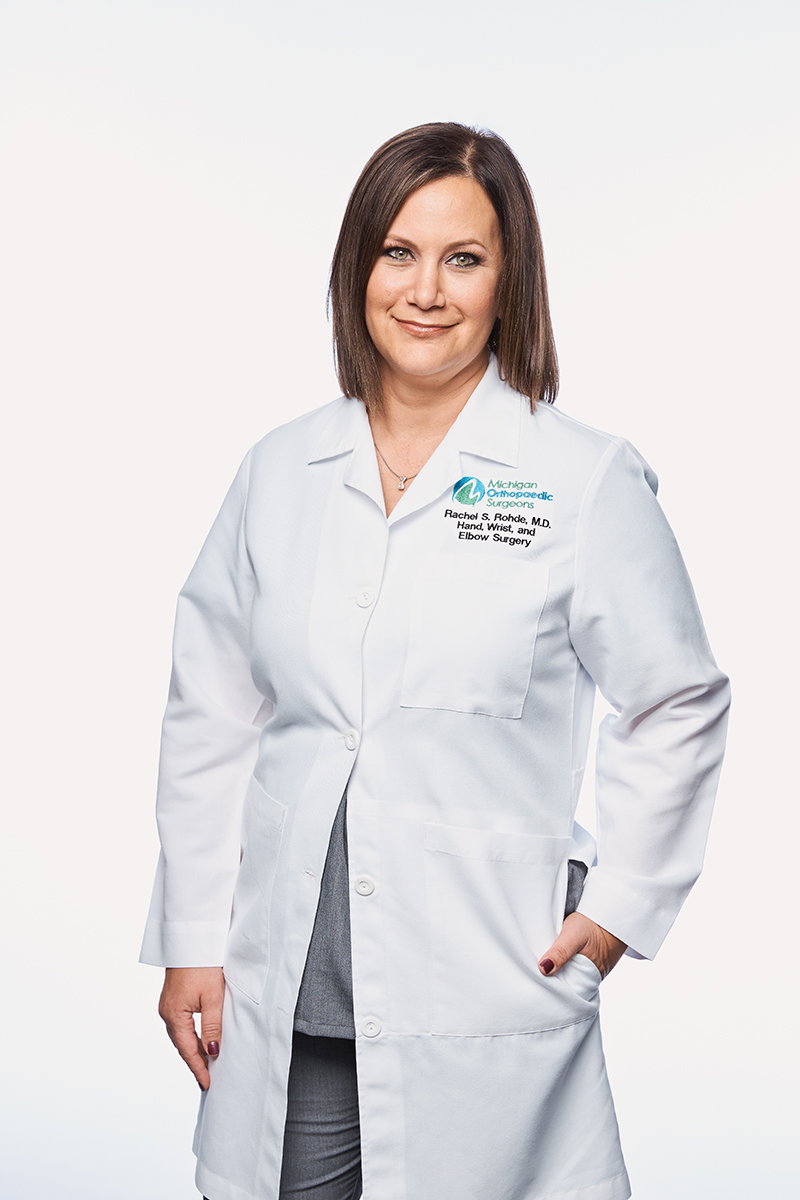
Dr. Rachel Rohde
Orthopedic hand surgeon, Beaumont Hospital, Royal Oak
My hero is my husband, Dr. Steven Rockoff. He has been involved in medical and air transport since he was a teenager. Now he’s an emergency room physician and the service chief at the Henry Ford West Bloomfield ER. A member of the Michigan Disaster Medical Assistance Team, he was deployed to help in Puerto Rico immediately after Hurricane Maria. He spent two weeks there setting up hospitals and providing care in the midst of a literal catastrophe. Never in a million years did I expect that he would have to do the same at home. During the COVID-19 pandemic, he helped to prepare his ER and his health system for the upcoming cases. He has worked tirelessly throughout the pandemic, never voicing any sort of concern over his own well-being.
I remember late one night, he sent me a text message that they wanted him to help out overnight at the TCF Center when they were opening [as a temporary site] to accommodate additional COVID patients. He asked if it was OK with me if he didn’t come home till the next day. I thought, this guy is full of energy and no fear. It was hard for some of us who stay at home and have our routines interrupted, but to watch him go in and face the scariest part, to me, was heroic. I admire that he jumps right into the fire. He knew when there was work to be done and lives to be saved, and his goal was just to go in and take care of patients and the health care providers. He’s a leader who looks out for his people. I’m so glad that he was here for us and our community.
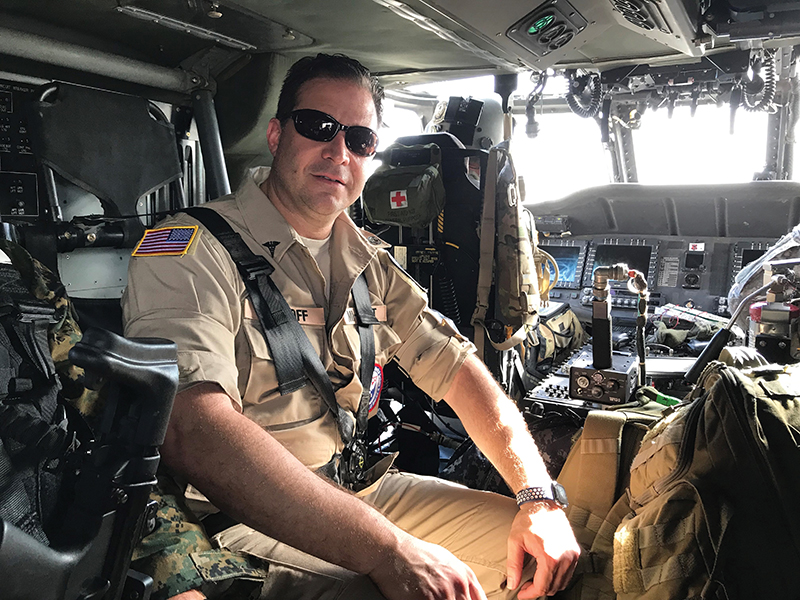
Dr. Steven Rockoff
Service chief, Emergency Department, Henry Ford West Bloomfield Hospital
I’m the service chief of the emergency department for Henry Ford West Bloomfield Hospital. Watching the reports and what was happening in China around Christmas time, I could tell that what was going on was very significant. In January, we had our first case of COVID on U.S. soil. That put people on alert, and we started having preparatory meetings within our department. We ordered medical equipment in March, not knowing our first case was going to hit Michigan the next week. A lot of what we did was verbal pre-planning and preserving personal protective equipment.
I’m part of a team, the Disaster Medical Assistance Team, or DMAT. Prior to becoming a physician, I was a paramedic. So I think I was always used to helping in acute situations and emergent situations. The DMAT team has responded to hurricanes, wildfires, and to help with COVID in Texas. In Puerto Rico [when we were deployed to help after Hurricane Maria], there were many more patients at times than care could be appropriated for. There was a shortage of ventilators like we had here in the states. So I knew the importance of pre-planning and conserving. That experience gave me the background to deal with what we dealt with here.
When we go into these disaster situations, it’s the family support that has to be there for you to be successful in your mission. For Hurricane Maria, I gave my wife 12 hours’ notice that I was leaving for two weeks. We had a 1-year-old, a 2-year-old, and a 7-year-old. She kept the home together. The exact same thing happened with the COVID response. During the first month, I worked every single day, 12 to 16 hours a day. I never left the hospital outside of coming home to sleep.
I’ll be honest, my biggest fear during this time was being a leader and not making the right decision. If I make the wrong choice, it can harm my team, and it can hurt our patients. There was no playbook to use, so a lot of the time you’re making decisions on the fly, and you don’t know how they’re going to turn out. But you can’t wait on it. As a leader of our department, my greatest fear was that somehow I would let the team down — that one of my team members would get sick because I didn’t consider something or implement the right protocol. Thank God that didn’t happen.
It’s incredible to see some of the sacrifices our team made. A lot of people were very scared of this at first. It was like a burning building with people running out of it. Well, our team, we ran to that burning building. We ran to assist our patients. I feel honored to work with the nurses and physicians and physician assistants. It was also amazing to see how Henry Ford handled the situation. We never ran out of PPE. That’s a testament to our system that they were forward-thinking. I’m very proud to be part of this health system that responded the way that we did to COVID. We kept our people and our patients safe.
—As told to Madeline Halpert
Top Doctor Jamal Zarghami and His Hero, Dr. Manhal Tobia
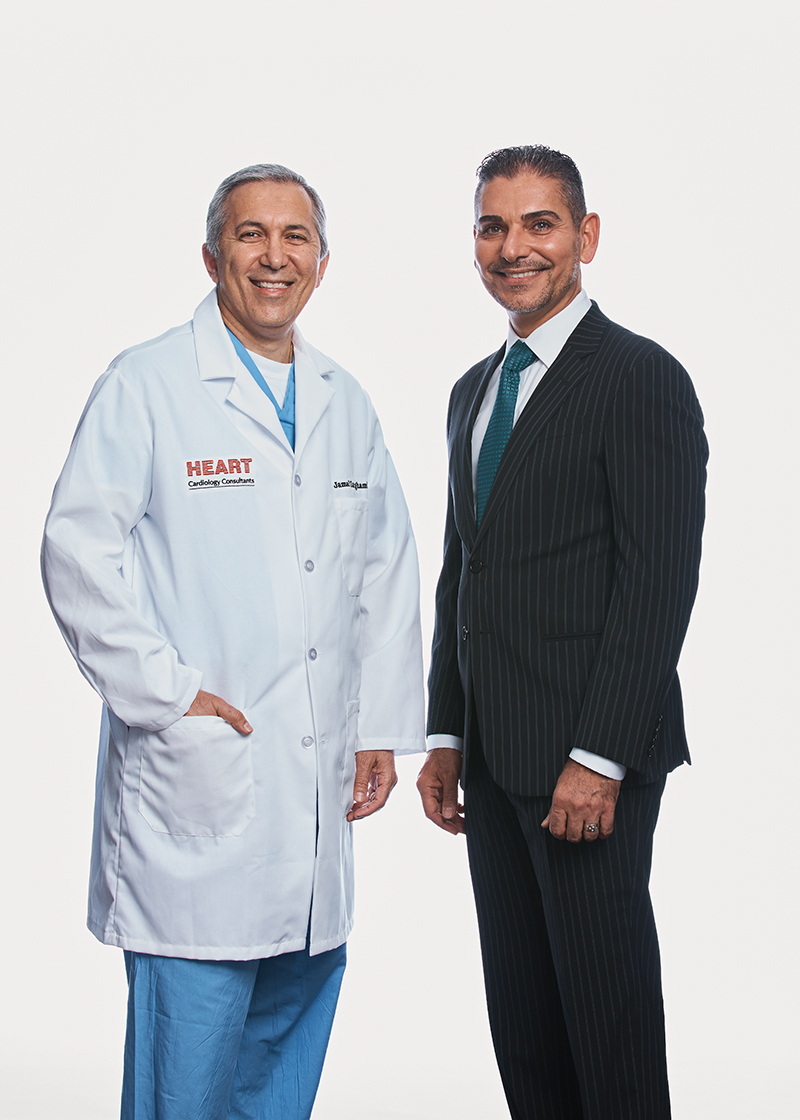
Dr. Jamal Zarghami
Cardiologist, Ascension Providence Hospital
My hero is Dr. Manhal Tobia. He’s chief medical officer for Providence Hospital. When COVID hit, the stress, the anxiety hit the whole medical field like a rock. This is where he really shined. What I noticed at the end of putting in 16-hour shifts, he was calling the patients’ families to talk to them. He took the time to make sure staff, nurses, janitors, and lab personnel were thanked on a regular basis. The morale in hospitals was really low, but he always just put that little extra smile in, that little extra pep. You can’t teach that in medical school. It’s not written in a book. It comes from your heart.
Dr. Manhal Tobia
Chief medical officer, Ascension Providence Hospital
When we went to medical school, we made an oath. We said we’d deliver care to patients even in extreme circumstances. This is a prime example where physicians really have a sense of why they went to medical school. At the end of the day, we signed up for this.
It’s been very difficult. I’m only human. I’m Chaldean, and the Chaldean community is very affectionate. We love to have people over. I have one sister with three children, and I prohibited her from coming to my house for about a month and a half. It was very hard for me to not see my sister for so long. I couldn’t hug or kiss her. I couldn’t see her children or my cousins. As a human being, not to have that interaction and personal touch was just very difficult. Family presence makes hardships easier. But for this, you can’t have family interaction.
I’ve always felt a leader should be with his pack. I made an effort to round twice each day on every floor of the hospital. I made an effort to be present. It was personally important to me to keep my staff safe and make sure I answered any questions they had. Maybe we couldn’t kiss or hug children or family, but we became family together. We cried many days and laughed many days. We found some joyful moments. You have to find joy in everything. —As told to Lyndsay Kalter
|
|
|




